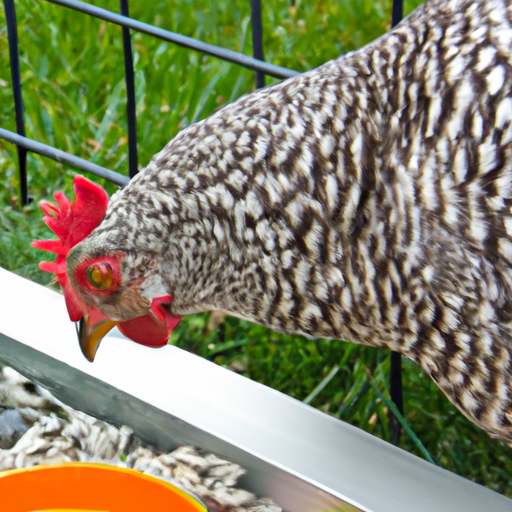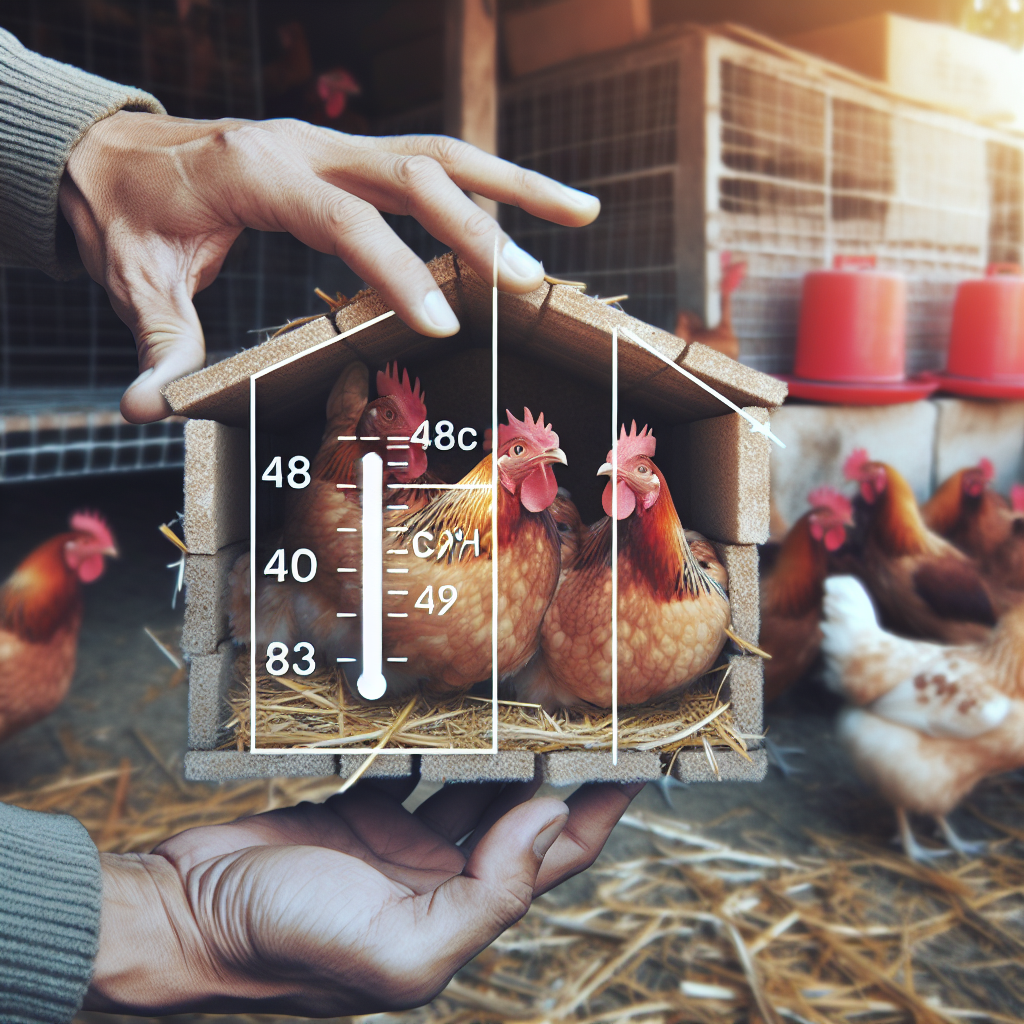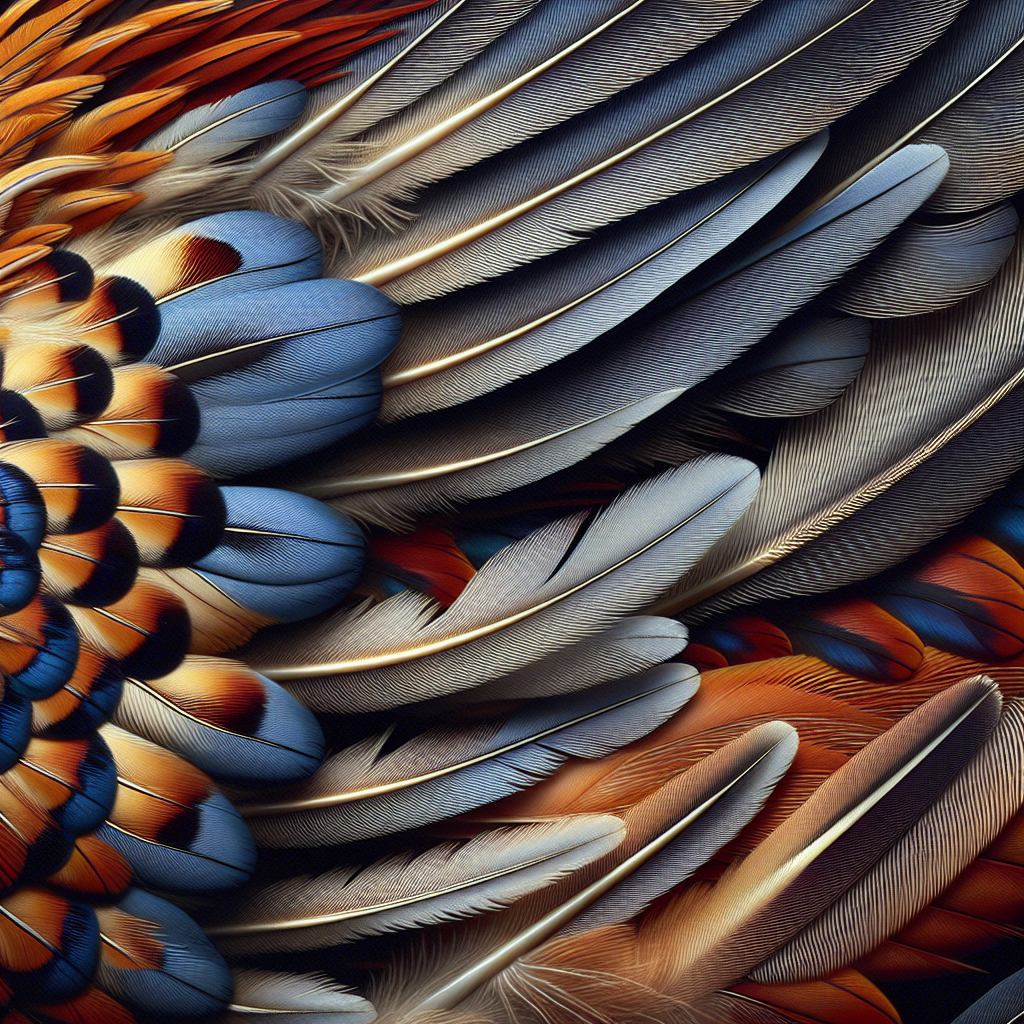If you’re a proud owner of a flock of chickens, you might find yourself wondering how often you should check on your feathered friends throughout the day. After all, you want to ensure they’re healthy, happy, and receiving the care they need. In this article, we’ll explore the ideal frequency for checking on your chickens and offer some helpful tips to maintain their well-being in a friendly and stress-free manner. So let’s dive into this important aspect of chicken ownership and find out the perfect balance between vigilance and giving your feathered companions their space to roam.
Checking on Chickens in the Morning
Inspecting Food and Water Supply
In the morning, it is important to start by inspecting the food and water supply of your chickens. Ensure that there is enough feed available for them to have a nutritious and balanced diet. Chickens require a mix of grains, pellets, and fresh greens to meet their nutritional needs. Checking their water supply is also crucial as chickens need access to clean and fresh water at all times. Make sure their waterers are filled to the appropriate level and free from any debris or contaminants.
Monitoring General Health
As you check on your chickens in the morning, it is essential to monitor their general health. Look out for any signs of illness such as lethargy, loss of appetite, abnormal droppings, or respiratory issues. Healthy chickens should have bright eyes, clean feathers, and active behavior. If you notice any abnormalities or concerns, it may be necessary to seek veterinary advice promptly to prevent the spread of any potential diseases.
Observing Behavior and Temperament
Observe the behavior and temperament of your chickens during your morning check. They should be active, scratching the ground, and socializing with their flockmates. Chickens are social animals and enjoy companionship, so observing positive social interactions among them is a good sign. If there is any bullying or aggression, it’s important to address the issue to prevent injuries or stress within the flock.
Checking for Any Signs of Illness
During your morning inspection, it’s crucial to be vigilant for any signs of illness among your chickens. Some common signs of illness include coughing, sneezing, discolored combs or wattles, or abnormal discharge from the eyes or nostrils. Monitor their overall appearance and behavior for any abnormalities or changes. By catching any signs of illness early, you can take appropriate measures to prevent the spread of disease and provide necessary medical attention.
Checking on Chickens in the Afternoon
Replenishing Food and Water
In the afternoon, one of the main tasks is to replenish the food and water supply for your chickens. Chickens have high metabolisms and constantly need access to food and water. Check if their feeders and waterers need refilling and ensure that the feed is fresh and free from pests. Providing a regular supply of clean water is essential for their well-being and hydration.
Assessing Environmental Conditions
When checking on your chickens in the afternoon, assess the environmental conditions within their coop or run. Ensure that the temperature is within a comfortable range and that there is adequate ventilation to prevent the buildup of humidity and harmful gases. Chickens are susceptible to heat stress, so it’s important to monitor the temperature and make adjustments if necessary. Additionally, ensure that there are no drafts that could cause cold stress during cooler months.
Inspecting Coop Cleanliness
Maintaining a clean coop is crucial for the health and well-being of your chickens. Inspect the cleanliness of the coop in the afternoon and remove any droppings, feathers, or bedding that may have accumulated. Dirty bedding can harbor bacteria and parasites, so it’s essential to maintain a clean living environment. Regularly cleaning the coop also helps to prevent unwanted odors and pests from infesting the area.
Observing Social Interactions
During the afternoon check, take the time to observe the social interactions among your chickens. Chickens have a hierarchical pecking order, and social dynamics can impact their well-being. Ensure that there is no excessive bullying or aggression within the flock. If you notice any signs of unrest or aggression, it may be necessary to provide additional space or resources to alleviate tension and maintain harmony within the flock.
Checking on Chickens in the Evening
Closing the Coop and Ensuring Safety
In the evening, one of the important tasks is to close the coop and ensure the safety of your chickens. Close all coop doors and secure them properly to protect your flock from predators. Check for any potential entry points and reinforce the coop if necessary. This step is vital to keep your chickens safe overnight when they are more vulnerable to nighttime predators.
Collecting Fresh Eggs
The evening check is the perfect time to collect fresh eggs laid by your chickens throughout the day. Gather the eggs carefully to minimize any potential damage or contamination. Regularly collecting eggs also prevents them from being trampled, cracked, or pecked, ensuring that you can enjoy fresh and quality eggs.
Performing Bedtime Health Check
Before your chickens settle down to roost, it’s important to perform a bedtime health check. Observe their overall well-being, paying attention to any signs of stress, injury, or illness. Check their feathers for parasites such as lice or mites and treat accordingly if necessary. The bedtime health check helps you identify any potential issues that may have arisen during the day and ensures that your chickens are in good condition for the night.
Monitoring Roosting Behavior
During the evening check, observe the roosting behavior of your chickens. Chickens naturally roost on higher perches, so ensure that there are appropriate roosting spaces available in the coop. Monitor if all chickens are successfully roosting and if any may need assistance or have trouble settling down. Comfortable roosting positions promote a good night’s rest and overall well-being for your feathered friends.
Checking on Chickens during Extreme Weather
Providing Adequate Shelter
During extreme weather conditions, such as intense heat or severe storms, it is crucial to ensure that your chickens have adequate shelter. Provide shade structures or umbrellas to protect them from direct sunlight during scorching days. In the case of storms, make sure the coop is secure and protected from strong winds, heavy rains, or snowfall. Adequate shelter helps to minimize stress and maintain the health of your chickens during extreme weather.
Monitoring Temperature and Humidity
Extreme weather can greatly impact the temperature and humidity levels within the coop or run. It is important to regularly monitor these factors during extreme weather conditions. High temperatures can cause heat stress, while low temperatures can lead to cold stress or frostbite. Adjust ventilation and insulation as necessary to ensure a suitable environment for your chickens.
Offering Extra Water Sources
During extreme weather, it is important to provide extra sources of water for your chickens. High temperatures can increase their water consumption, so ensure that there are additional waterers available to meet their hydration needs. Consider using shallow containers or adding electrolytes to the water to help prevent dehydration. Monitoring the water level and quality is crucial to keep your chickens healthy during extreme weather.
Checking on Chickens during Hot Summer Months
Providing Shade and Ventilation
Hot summer months require additional measures to keep your chickens cool and comfortable. Provide ample shade within their run or pasture to allow them to escape direct sunlight. Shade structures or natural shade from trees or shrubs can provide relief from the heat. Adequate ventilation is also essential to prevent a buildup of heat and humidity within the coop.
Supplying Cooling Options
Along with shade and ventilation, supplying cooling options can further help your chickens beat the summer heat. Consider providing shallow pans or containers of water for them to wade in or misting systems to create a cooling effect. You can also freeze water bottles or containers and place them in their coop or run for them to lean against or lie next to. These cooling options help regulate their body temperature and reduce the risk of heat stress.
Monitoring for Heat Stress
Throughout the hot summer months, it is crucial to monitor your chickens for signs of heat stress. Excessive panting, lethargy, pale combs, or wings held away from the body are indicators that your chickens may be struggling with the heat. If you notice any of these signs, take immediate action by providing additional shade, ventilation, and cool water sources. Heat stress can be life-threatening, so it’s essential to protect your chickens from extreme temperatures.
Checking on Chickens during Cold Winter Months
Ensuring Sufficient Bedding
During the cold winter months, ensuring sufficient bedding is vital to keep your chickens warm. Layer the coop floor with deep bedding to provide insulation against the cold ground. Materials such as straw, wood shavings, or shredded paper can be used to create a thick layer of bedding. Regularly monitor and add additional bedding as needed to maintain warmth and comfort.
Checking Water for Freezing
Water freezing is a common issue during the winter months, making it important to check on your chickens’ water supply. Regularly inspect their waterers and break any ice formation. Consider using heated waterers or placing insulated water containers to prevent freezing. It is crucial for your chickens to have access to unfrozen water throughout the day to prevent dehydration and maintain their overall health.
Preventing Frostbite
During cold winter months, chickens are susceptible to frostbite, especially on their exposed combs, wattles, and feet. To prevent frostbite, ensure that the coop is free from drafts and excess moisture. Apply petroleum jelly or a similar protective substance to exposed areas to create a barrier against the cold. Regularly monitor their temperature-sensitive body parts and take action if any signs of frostbite occur.
Checking on Chickens during Rainy Days
Examining the Coop for Leaks
Rainy days require extra attention to ensure that the coop remains dry and leak-free. Check for any signs of leaks or water seepage within the coop. Patch up any holes or gaps that may allow water to enter. A dry coop helps to prevent dampness, mold, and bacteria from affecting the health of your chickens.
Maintaining Dry Bedding
In addition to a leak-free coop, maintaining dry bedding is essential during rainy days. Moist bedding can lead to respiratory issues and provide a conducive environment for parasites and pathogens. Regularly replace damp or soiled bedding with fresh, dry materials. This ensures the comfort and well-being of your chickens while they seek shelter during rainy weather.
Assessing Drainage around the Coop
Pay attention to the drainage system around the coop during rainy days. Ensure that water is effectively channeled away from the coop to prevent flooding or pooling near their living area. Proper drainage helps maintain a dry and comfortable environment, reducing the risk of water-related health issues for your chickens.
Checking on Chickens when Introducing New Members
Observing Initial Interactions
When introducing new members to your existing flock, it is important to observe the initial interactions closely. Chickens establish a social hierarchy and may need time to establish new pecking orders. Watch for any signs of aggression or bullying and intervene if necessary to ensure the safety and well-being of all members in the flock.
Providing Separate Quarantine Area
Before integrating new chickens with your existing flock, it is recommended to provide a separate quarantine area. This allows you to closely monitor the health of the new birds and prevent the spread of any potential diseases to your existing flock. Keep the new members separate for a minimum of two weeks while observing their overall health and behavior.
Monitoring for Aggression
During the integration process, it’s important to monitor for any ongoing aggression or bullying among the chickens. Some aggression is normal, as it helps establish a new pecking order. However, excessive aggression or prolonged bullying can lead to serious injuries or stress. If any chickens show persistent aggression or signs of distress, consider providing additional space or separating the aggressive bird temporarily until harmony is achieved.
Checking on Chickens during Broody Periods
Monitoring Nesting Behaviors
During broody periods, hens become determined to hatch eggs and may display nesting behaviors. Observe their behavior closely to identify broody hens. Signs include persistent sitting on a nest, puffed-out feathers, aggression when approached, or refusal to leave the nest. Monitoring nesting behaviors helps you understand their needs and support their natural reproductive instincts.
Ensuring Adequate Food and Water
Broody hens tend to spend extended periods on the nest, which may result in decreased food and water intake. Ensure that broody hens have easy access to fresh food and water nearby to maintain their health and nutrition. Setting up a separate area with food and water for broody hens can help prevent other chickens from disturbing their nesting and ensures they do not become malnourished or dehydrated.
Assessing Egg Production
During broody periods, egg production may decrease as hens are focused on sitting on their nests. Monitor egg production closely and record any changes. This information can help you determine if broody behaviors are affecting egg-laying patterns within your flock. If necessary, provide alternative sources of eggs or adjust expectations for egg availability during broody periods.
Checking on Chickens when Chickens are Molting
Checking Feathers for Abnormalities
When your chickens are going through a molting period, it’s important to check their feathers for any abnormalities. Molting is a natural process where chickens shed old feathers and grow new ones. Check for signs of excessive feather loss, bald patches, or signs of feather pecking. Identifying abnormalities allows you to address any underlying issues and ensure your chickens’ overall feather health.
Ensuring Balanced Diet
Feather growth requires proper nutrition, so ensuring a balanced diet is crucial during molting periods. Provide a feed that is specifically formulated to support feather growth. Nutrients such as protein, amino acids, vitamins, and minerals are essential for healthy feather development. Consulting with a poultry nutritionist can help you select the appropriate feed and supplements to meet the specific needs of molting chickens.
Monitoring Feather Regrowth
Monitor the progress of feather regrowth during the molting period. As new feathers emerge, observe their quality and growth rate. Healthy feather regrowth should be even, smooth, and vibrant. Monitor for any signs of abnormal feather growth, such as excessively curly or misshapen feathers. Addressing any concerns promptly contributes to the overall well-being and appearance of your chickens.
In conclusion, checking on your chickens throughout the day is essential for their health, well-being, and overall happiness. By following a comprehensive checklist that covers morning, afternoon, and evening checks, as well as specific considerations for extreme weather and various stages in their life, you can ensure that your chickens are well-cared for. Whether it’s inspecting their food and water supply, monitoring their health and behavior, or providing the necessary measures to protect them from extreme weather conditions, your regular checks will contribute to a thriving and content flock. Remember to always approach checking on your chickens with a friendly demeanor, as they rely on you as their caretaker for all their needs. Happy chicken keeping!




